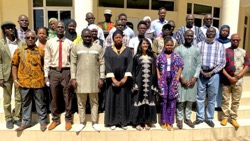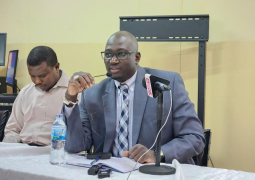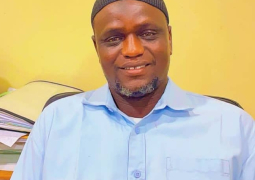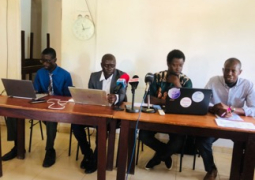
The project would focus on strengthening the climate resilience of vulnerable communities and ecosystems as well as mitigate the impacts of climate change, including flooding, droughts, and sea level rise.
The National Environment Agency (NEA), serving as the Global Environment Facility (GEF) operational focal point for The Gambia said that the intervention of the project would be designed to reduce the vulnerability of local communities to the intensifying impacts of climate change on urban and peri-urban systems and populations.
During a recent engagement with stakeholders for the project which was also designed by identifying key priority areas, Artifa, the Ecosystem-Based Adaptation (EBA) task manager said they are trying to solve problems and refine the project.
She added that one of the reasons they wanted the contributions of the stakeholders was to have feedback and refine the project and most importantly to have a co-financing articulated so that they understand the phase.
“We need to understand who the actual players are and what they would be doing to make the effort more resilient,” she stated.
Lamin Koma, programme manager and head of the Coastal and Marine Environment at NEA said that they have been working very hard to make sure they address the challenges of coastal environment.
He said that the impact of climate change on socio-economic activities was causing serious negative consequences on their livelihood.
“The project has come to assist those vulnerable communities, particularly the urban and peri-urban areas,” Mr Koma said, noting that at the agency they have done a lot of work in the ecosystem which includes data collection to come up with a decision that will help the government in policy direction.
Mariama Ndow, a representative of the Ministry of Environment said as key negotiators of loss and damage, they have seen what the significance of climate change has caused in the country both in the rural and urban areas since 2021.
She stated that to ensure that the proposed urban resilience project is approved by the GEF, they need to identify sources of co-financing for the project.
Sambou Kinteh who represented the director of the National Climate Change Secretariat pointed out that climate change studies have indicated communities highly vulnerable to the impact of sea level rise, especially the capital city.
“This is the right time for us as a nation to come up with strategies and projects that will improve our resilience and improve the adaptation capacity of our people,” Mr Kinteh stated.





